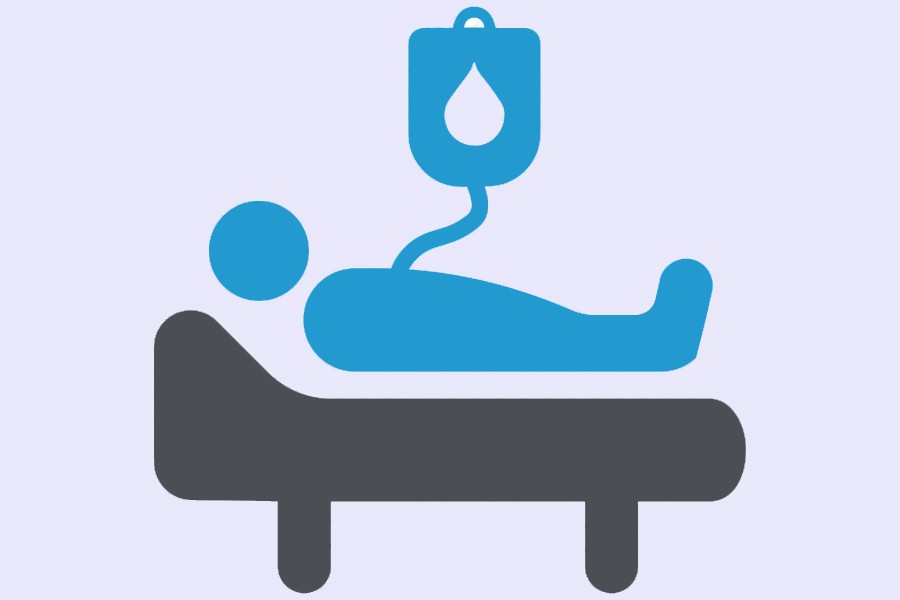Mismanagement and irregularities are common in most government health facilities. The private ones are also not immune to such vices. Some of the latter categories have been operating without valid licences while a few others overcharging their patients at will.
All these are an open secret. Yet the Regent Hospital and few more scams that came to light recently have triggered serious public concern. People are now particularly sensitive to health issues because of the COVID pandemic.
However, the health authorities have little contribution to the unearthing of the scams. Much of the credit goes to the media and the Ministry of Home affairs.
The Directorate General of Health Services has been at the receiving end since the start of the pandemic for many gaping holes in its service delivery. The latest scams have surely embarrassed it publicly. Amidst all these unsavoury developments, the DG health resigned and the director (hospitals) was transferred along with a few more changes in the upper echelons of the health ministry.
Following these changes, the people naturally expected some tough actions against the errant private health facilities. But a recent letter from the health ministry to the home ministry has dashed their hope. In the said letter, the health ministry has sought the cessation of police raids on private and public hospitals on the plea that such actions do cause disruption to normal hospital service, make both service seekers and service providers panicky and undermine the image of the health sector.
To be honest, most part of the health ministry's observation is divorced from the ground realities. In fact, the public image of health facilities in Bangladesh has always been poor. Tough actions against non-compliant health facilities can only help restore public confidence in them.
Irregularities and mismanagement in the state health facilities, big and small, have been rampant. The poor and low-income people who seek services from such facilities are the real sufferers. However, inadequate allocation in the national budget for the health sector remains yet another hurdle to offer satisfactory service to the patients in the state-owned hospitals.
During the last four decades, the number of private health facilities has gone up astronomically to fill up the vacuum in the health sector. Such facilities are now dominating the health sector. Some private institutions are generally managed better than the state-owned ones. They are also expensive compared to their public sector counterparts. So, the general expectation is that these private health enterprises would adhere to relevant laws and rules and offer quality service to their patients. But, here too, the rot has gone deep in the absence of monitoring and due to the high prevalence of one single vice---corruption---in the health sector.
It is now widely believed that a good number of private hospitals and clinics do not even have any valid licences. Even some top hospitals reportedly did not bother to get their licences renewed from the government agency concerned over a long time. Nor has the DGHS felt it necessary to make regular on-the-spot visits to see whether the private hospitals are complying with rules and regulations properly. There are provisions for punishment for the errant health facilities. Allegations have it that the private health facilities do manage everything by greasing the palm of the officials concerned. This is, however, an old story and is applicable in the case of most government agencies.
The raids conducted by the mobile courts led by executive magistrates recently did raise the hope that, if not all, some errant health service providers would face the music this time. It is now clear that such an expectation was misplaced. The wrongdoers will not be punished and given a fresh opportunity to continue their operation.
An order issued by the DGHS on Saturday last is a case in point. The directorate asked all private hospitals, clinics and diagnostic centres to get their licences renewed by August 23 next. Their past non-compliance is thus being condoned.
An estimated 15,000 private health facilities are now in operation in the country and two-thirds of them reportedly do not have any licences. So, what is about these facilities? Should they continue without a licence?
The relevant section of the DGHS being highly deficient in manpower and logistics is unable to make massive-scale field-level monitoring.
It seems that the directive issued on licence renewal is the mere eyewash, aimed at misleading the people. Its effectiveness would dissipate even before the deadline.
The country's health management has been in a dire state. Only because of the COVID-19 pandemic some of the ills have come to the fore. But it is hard to say that the government machinery is serious about addressing those issues. The handling of the pandemic does highlight this fact.
The ongoing deadly pandemic has shown that health is a very serious issue. Any indifference to it, in terms of resource allocation and effective management, does expose a population to a disaster.
The country's health sector, under the prevailing circumstances, requires urgent streamlining. The present administrative setup and management style are highly inefficient to carry out this job. The government should immediately form an independent commission with health experts and highly experienced former civil servants to suggest ways for making the health services efficient and people-friendly. What, however, will be most important is the implementation of the recommendations of the commission, if it is constituted at all.


